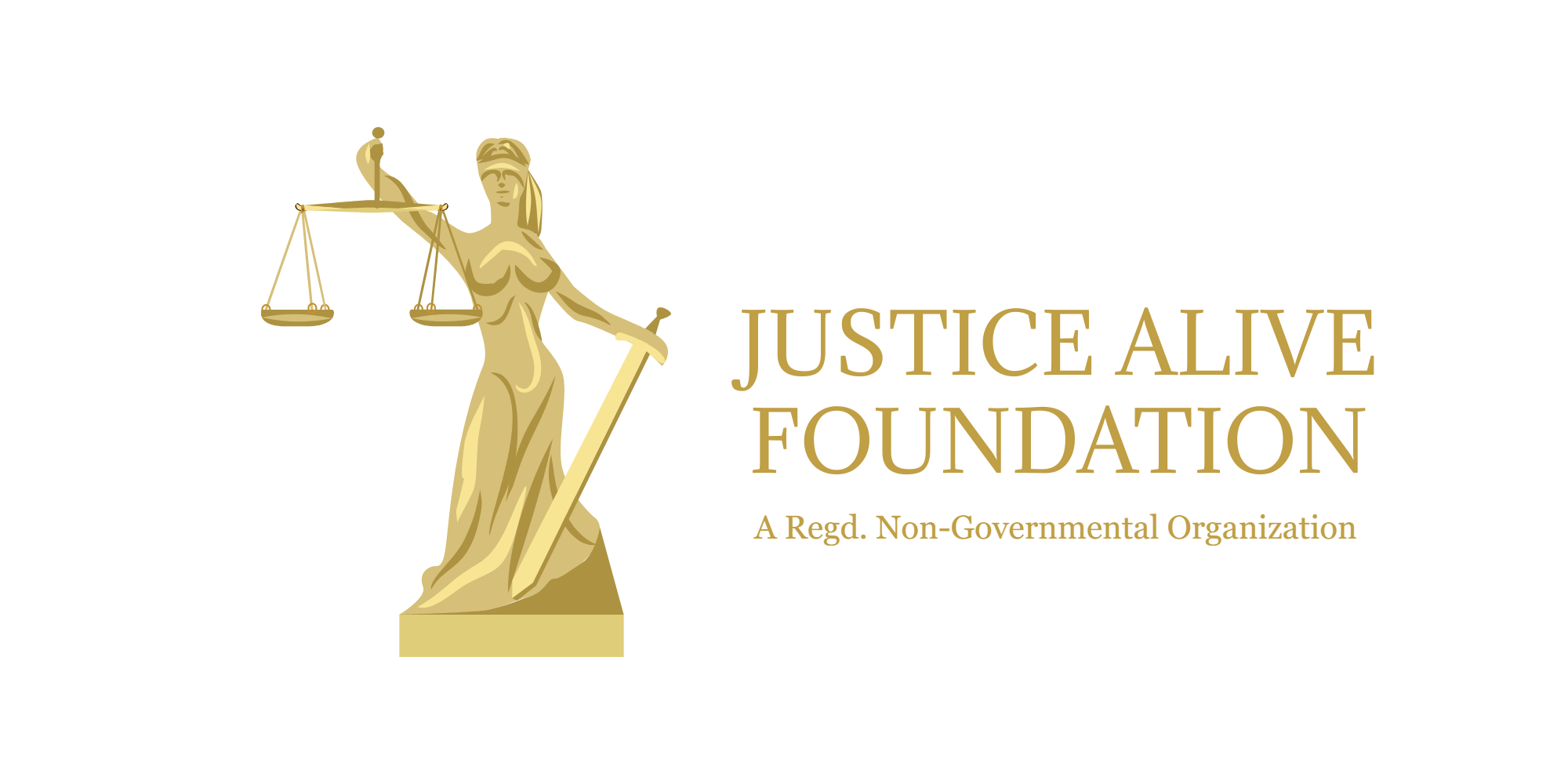
Scope Of Implementation Of A Uniform Civil Code With Indian Secularism
This article has been written by Ms. Tulika Gupta.
Introduction:
India is a country of propelling cultural diversity, traditions, celebrations, and festivals that bind each person together to build a community that stands for and by each other. A country that overcomes personal religious barriers to celebrate the true meaning of brotherhood and harmony.
While constituting the Indian Constitution, our forefathers focused on gender and religious equality. That’s why, time and again, the Constitution has been amended to bring to justice the futuristic vision of our forefathers and abide by its status as a living document.
However, when the ongoing laws, recognition of the need for reforms and requirements in the Acts, or considering the implementation of new laws and codes based on the recommendation of the appointed Committees comes into the picture, there is a debatable topic that catches the most attention.
Does a secular country like India have a Uniform Civil Code?
In the modern era, while discussing the scope to strengthen this oneness through legal changes and actions, the implementation of the Uniform Civil Code, or the UCC, as covered under Part IV, Article 44 of the Indian Constitution, comes into the picture.
The Indian Constitution is a grundnorm for the country’s functioning. Still, the interpretation of the DPSPs under Article 37 promotes the implementation of the UCC but does not make the implementation mandatory. The unenforceability of the provisions of Part IV by the Courts raises the question of whether India needs to have this Code.
However, remember that these are fundamental for the country’s governance, and also, the State must apply the principles while making the country’s laws.
The Uniform Civil Code aims to protect vulnerable sections of society and promote gender justice and equality, especially in unfortunate or unforeseen circumstances.
The vulnerable sections of society hold a significant hold in the implementation of such a code in India, which is also home to people from different religions. Also, as the Code aims to promote brotherhood and integrity by bringing all people on a single platform, it is essential to know the representation requirements of people so that a perspective can be made.
Source: PEW Research Org
So, world religions are on growth in India. With the rising population, there come numerous issues related to the personal laws that govern the specific sections of the Indian people. Also, the amendments have been particular to these personal laws. Hence, if it is a general matter of law and fact, it has to be considered again and again based on the differentiation in personal laws.
The judicial system of the country is widespread and has different kinds of matters for dealing, discussions, adjudication, and execution. The best way to tackle the rising need for amendments or changes in various personal laws is to introduce a uniform code that wholesomely addresses the various matters and applies to all people of India, irrespective of their religion, caste, creed, and gender.
The main idea is to enhance equality, representation, and justice amongst people of all sects of society so that they can contribute to a progressive tomorrow.
Scope, Need, And Coverage
The UCC debate in India is age-old and can be understood through India’s stage in the pre-independence or colonial era and the post-independence or post-colonial era.
In the pre-independence era, the Lex Loci Report of October 1840 focused on the importance of having uniformity in the Indian Laws. However, the Queen’s Proclamation of 1859 promised non-interference in religious matters. Hence, the codification of personal laws did not happen, and criminal laws took place only.
However, in the post-independence era, drafting committee leaders like Jawaharlal Nehru and Dr. Ambedkar pushed for the UCC. But, due to a lack of consensus, it became a part of the DPSPs.
The idea behind forming a committee, followed by the reconsideration of the implementation of the UCC in India, aims to bring social justice and equality to the country. These are the basic principles that guide the functioning of the biggest democracy in the world and are embedded in the preamble itself. It aims to pull off the discriminatory practices like that of instant divorce under Mohamden Law that was challenged in the Shah Bano Case and others like the inheritance rights for daughters that were amended in 2005.
However, a democratic country like India is open to its citizens exercising their fundamental rights of speech and expression, per Article 19 (1)(a) of the Indian Constitution. Hence, all kinds of controversies and opinions around the implementation of the UCC are in full swing, too.
Amid all this, a survey conducted by the Centre for Policy and Research (CPR), a registered society in St. Soldier Law College, has submitted its findings that now belong to the Law Commission of India.
The total number of respondents was 233, and they were a mix of Hindus, Sikhs, Christians, Muslims, Buddhists, and Jains. The survey statistics have revealed exciting details about the people and their take on the implementation of UCC. The implementation quotient received an overwhelming response from 99.8 percent of respondents. The noticeable thing over here is that the favorable reactions are from the Muslim community as well, wherein the questions were related to provisions of marriage and divorce, followed by others like adoption, maintenance, and succession.
The scope of UCC extends to strengthening the global secular spot that India holds and will set up a clear example of national unity and integrity. It is a futuristic sight that ensures women’s empowerment by securing their rights, regardless of gender and religion. However, the exact needs transparent communication among people of all age groups so that the social implementation can be smooth.
Also, the provisions need to skillfully cater to the sympathetic hold of the minorities in the country. There should be no hurry in the implementation until the lawful requirements of the minority religious communities are met.
Legality
The reforms during this period have been many, including many landmark judgments, including both Hindu and Muslim personal laws. Putting light on the same, the Uniform Civil Code aims to align the laws that are applicable to specific communities, including the following:
- The Hindu Marriage Act
- The Hindu Succession Act
- The Indian Christian Marriages Act
- The Indian Divorce Act
- Parsi Marriage And Divorce Act
- Mohamdem Laws Related To Marriage, Divorce, And Maintenance
India’s pluralism and cultural diversity are home to people from different regions, religions, and beliefs. However, owing to the differentiation in their thoughts, ideologies, and systems, the religious communities have come up with their laws, and people from each community follow what they preach.
However, there have been various legal rulings in the past that highlight the question of overcoming these regional ideologies and personal laws, followed by the need to have a uniform code that applies to all and protects the integrity of all Indian citizens.
Drawing significant attention to the sensitivity and the rising need for the implementation of the Uniform Civil Code, the Apex Court of India, in Mohd. Ahmad Khan Vs. Shah Bano Begum & Ors, famously known as the Shah Bano Case, has urged the Central Government to act upon the need to have and implement a standard civil code.
Further, in another landmark judgment, Sarla Mudgal & Others Vs. Union of India, the Apex Court emphasized the legality of marriages in India after conversion in the context of committing polygamy, which is not valid under Hindu Law. Considering this case, the Supreme Court has emphasized implementing the Uniform Civil Code. The judgment holds that after an Islamic conversion of a Hindu Man to marry, the second marriage will be invalid if the first marriage has not been dissolved under the Hindu personal law.
The most recent update on the same, dated June 14, 2023, aims to welcome opinions from the general public and recognized religious institutions. The 22nd Law Commission of India has accepted the views through a public notice and seeks to understand the quotient of need and implementation.
Perspective Approach
It is one’s belief that draws people together and the thought that makes them win over everything. India is home to immense diversity and is making its way to becoming a global example in context to the same. When the idea of becoming a global superpower comes into the picture, it is essential to address the underlying issues and let the solutions be into force.
As stated in the Hindu epic, The Bhagwat Gita,
| सत्त्वानुरूपा सर्वस्य श्रद्धा भवति भारत।
श्रद्धामयोऽयं पुरुषो यो यच्छ्रद्धः स एव स।। |
Humans are creatures of faith, and faith in humans can be installed by creating a common identity and a sense of belongingness amongst all citizens. The Uniform Civil Code is the perfect solution for promoting national integration and secularism. Also, the commonness will help in reducing communal and sect-related conflicts and, in turn, help in promoting brotherhood and oneness through a single platform. Further, it upholds the constitutional values that promote India’s vision that comes from its forefathers and extends to the generations to come.
Integrity, uniformity, oneness, and diversity are beads of the thread that draw Indian unity and consciousness together. A nation like India that has it’s vested in the religious, traditional, and cultural practices rooted in its people that come from different walks of life is a remarkable thing that has been prevalent since the olden times. The same objective has been a part of India’s freedom struggle and is now prominent if the Uniform Civil Code reaches the implementation stage.
A straightforward legal system accomplishes the Code’s implementation, and hence, a single mainstream behavior can be observed. There are high chances of the elimination of zero forms of prejudice and gender justice and equality is likely to be enhanced. The focus should be on removing the discriminatory practices, laws, and codes, which suppress the position of vulnerable sects of the society.
Also, women will have better representation, status, and opportunities in matters related to marriage, divorce, adoption, inheritance, and others like maintenance. Also, women’s position will be enhanced as they will be in a better position to challenge the regressive practices and patriarchal thoughts that are a clear violation of the fundamental rights of Indian citizens.
There is an air of confusion and doubt among people, followed by the spread of false information. Hence, the loopholes should be addressed by setting up portals, information centers, and discussion areas for people to get the desired information related to the law. It will help in adding to its accountability and accessibility. The idea is to take measures that support the Code and become more understandable for the ordinary people.
UCC is an applaudable attempt that culminates India’s multiculturalism and preserves diversity by bringing all sects on a common platform. Unity is essential while implementing uniformity, which can be met by following a multicultural approach. It will help in accommodating the difference and let people know and understand the benefits of implementation of a code for a better tomorrow where India and Indians are inseparable.
Implementation of UCC: A Progressive Start Towards Uniformity
In the 21st century, it’s time that we move towards a progressive tomorrow that can help expand India’s fabric, which is woven with harmony and brotherhood. The cultural sensitivity of the country should be well-catered amid the discussions of the implementation of the Code that takes all people of religious diversities under its umbrella to promote integrity, gender justice, equality, and women’s dignity.
An act to consolidate and amend the laws relating to promoting integrity, social and gender justice, and promote equality at all levels, irrespective of the population and religious divide of the country.
However, steps should be taken at the regional levels to ensure that misinformation is not spread and misinterpretation is curbed for a better understanding of the Code at all levels. In fact, steps like awareness marches, nukkar nataks, speeches, and seminars should be held in the right spirit for the spread of correct information. Also, timely debates with the religious stakeholders should be done so that their points can be understood and catered upon, while implementing the Code.
Also, there should be a balance so that there are no challenges to the constitutional standards. Culture, tradition, and diversity should go hand-in-hand with the equality and gender justice standards that are sought by the Code’s implementation. Hence, the focus should lay on the implementation of a code for collective equality and justice promotion for all.
Conclusion
Instead of having multiple laws, a full-fledged UCC will help in stabilization, uplift people, and, most importantly, bring the governmental organs to a place to uplift the condition of the marginalized sections of society for a better tomorrow and set a global unified example.
The act aims to uplift the position of women, promote their representation, and take steps to improve their dignity in society and for matters connected in addition to that and incidental to it. The main idea behind the act is to ensure total uniformity of ‘One Nation, One Law’ that bridges the gap among people and moves forward from diverse personal laws to a unified stand.






This Post Has 0 Comments